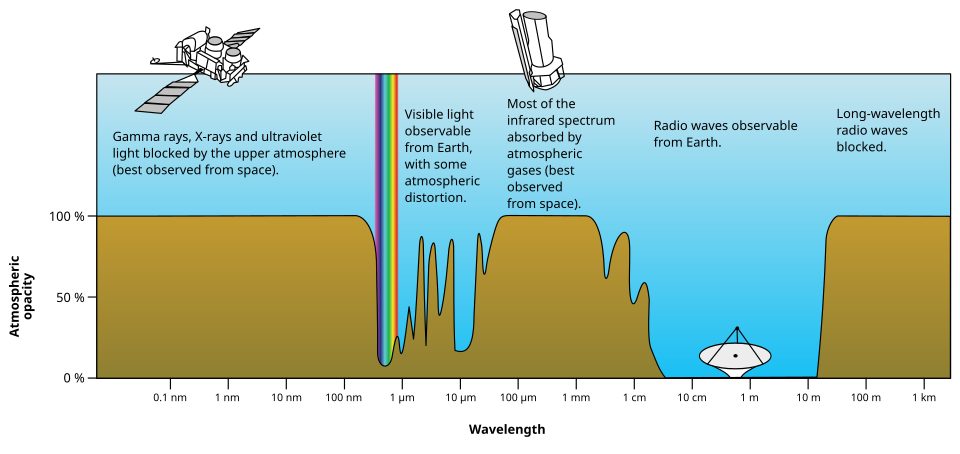The slippery definition of Product Manager
One of the challenges to the role is that different organizations have very different expectations, and desires for the people who fill the role.

Plenty of organizations have poured a lot of resources into building a persona for the typical product manager. And sure, perhaps there are some product managers that they know/have interviewed/have grown that match their specific definition. But the reality is that organizations will have a different need from their product manager(s).
In the past, I have often thought that this was more tied to when in the evolution of a company that they hired their first product manager. How mature they were, and how their “moment of need” defined the role of product manager for them. But my thinking on this has evolved significantly.
This came up recently as I was discussing with my boss what we needed in a product manager. We have an open requisition, and we were debating what we “need,” and he said something profound. That there is a spectrum of product management, from almost development engineers, to marketing focused, to almost general manager skills.
This sank in and I knew it was true. You have companies like Google and Facebook (ahem, Meta) basically using their Associate Product Manager programs to turn out near coder PdM’s. You have companies like Microsoft that don’t call their product managers “product managers” but instead call them “Program Managers” who staff with near MBA’s with a technical bent. And pretty much everything in between is out there.
In many ways, this makes finding, interviewing and hiring a product manager far more difficult than it ought to be.
The Near Engineer - Some job postings read like the search is for a Developer++. Really close to the engineering team, embedded with the team, talking shop, and almost being one of the gang.
Sometimes the title is “technical product manager”, but in reality you are a product owner whose responsibilities are closer to the engineering team than the business.
The various APM (Associate Product Manager) programs at major tech companies strive to build this part of the spectrum out. An internship, they build the bench for the product managers that they want/need. Not that there is anything wrong with it, my view is that it is too narrow of a definition of the role.
From the Google APM page:
When Marissa Mayer first became a Product Manager at Google, she and other senior leaders realized that the engineering-driven culture needed PMs who could collaborate creatively with engineers, designers, and other functions to determine what teams should do next. To fill this gap, Marissa began hiring new and recent graduates with interests in engineering, product strategy, and design. Since then, Google leaders have valued the program because so many successful Product Managers have come through it.
What is one thing you don’t see in that? Anyone?

That’s right, there is no customer intimacy. No experience with the outside view of the business. Look, I am not against taking technically minded fresh outs and molding them into product teams, but a pretty major component of what makes a good product manager is absent, that customer empathy, that skill in probing the needs of a customer’s pain points, and defining what is a reasonable product to build to relieve that pain (and that they might pay for).
Perhaps this is why Google kills so many products?
The ‘Near’ General Manager - at the other end of the spectrum is the overly business focused product manager. Armpit deep in the financials, forecasts, sales projections, and tossing around things like contribution margin, and strategic investments.
Product managers here are nearly functional business unit managers, spending their time in meetings to manage the business, and much less time on the bits and bobs of keeping the product development pipeline running smoothly.
These product managers are sometimes called “Program Managers” and often have more technical people reporting to them that handle the day-to-day aspects. The product owner, project managers, and sometimes, even technical product managers.
They know about the technology, they know it is built on AWS (or Azure, or GCP) because they see and approve the bills for the infrastructure.
And while all product managers should be attuned to the profitability and financial performance of their respective products, this product manager is deeply entrenched in the business performance, and spends a lot of time managing up.
They are far more likely to have an MBA, from a 2 year Business School (and not an online program) on top of an earlier STEM degree. They read The Harvard Business Review. They watch TED talks, they go to industry analyst conferences more than doing customer discovery.
Needless to say, one usually doesn’t start their product management career here. Often they step up and into this role after some significant successes earlier in their career.
These positions are often filled with help from retained executive recruiters. Rarely do you see these posted on job boards.
The Vast Middle - technical enough, a history of customer intimacy, more than a little technical marketing savvy, and a wide latitude of flexibility. Most product management positions are somewhere between the two poles of near-developer and general-manager. Alas, this is a very wide band, and that is what makes finding a good candidate difficult.
I have found that most companies are not clear about what they want or need, and instead build their job requirements as a wish list, making it a mélange of wish-casting, pie-in-the-sky, and a bunch of buzzwords that sound cool when you speak them.
This leads to a lot of churn in candidates, perhaps two or three “re-tooling” of the requirements, and then desperation as the time to find even a halfway decent candidate stretches to two or three quarters.
How to avoid this pain?
My experience in both sides, the job seeker, and the hiring manager, is that companies who know precisely what they want, what they need, and what they can negotiate on (skills/experience wise that is) are able to put together a job requisition that candidates can quickly judge and decide if they want to apply.
What makes this work? Clear roles, and responsibilities. Realistic prior experience expectations. Displaying a willingness to compromise (this is the “nice to have” section) on their dreams.
And for the love of God and all things that are holy, do not have any language that you are looking for a rock star, a 10x player, an uber mensch. To me that tells me you really don’t know what you want, and you will string out good to great candidates while waiting for that “unicorn that shits ice cream” to come across the wires.
Sidebar: It is my belief that companies who claim they only hire those unicorns really have no idea what the role does, and has no intention or ability to grow talent. Truth is the “unicorns” that do exist are quickly snatched up into executive leadership, or become part of the consultant class, and thus unobtainable except at big $$$ rates, and on their terms. YMMV and all that.
If you are getting too few applicants? Pretty good indication that your job requisition is shit. Go back to the woodshed and loosen some of your terms.
Too many “low quality” applicants? Increase the requirements to filter out the lower quality candidates.
Takes more than a few months to find a slate of good candidates? Then you might want to work closer with a recruiter with experience in sourcing product managers.
As a job seeker, you will find literally hundreds of “product manager” positions. (as of my writing this, a quick view of the SF Bay Area yielded over 1,200 open positions that I found within 30 minutes of searching, the actual number of openings is certainly much greater) Thus you will need to do your own selection process. Is it a domain you want to get in to, or do you have experience already? Is it an area that is interesting? Do you see yourself dedicating 3-5 years there? Is it a company that you want to work for? What compromises are you willing to make? Does the description and responsibilities map well to your proclivities?
Final thoughts
The role of “product manager” means different things to different organizations, and the community can provide the people to map to the expectations. This range of the skills and expectation of the role leads to a universe of the possible. The challenge is to map each role to a good candidate and to hire crisply.
That is easier said than done, leading to extraneous requirements to mask true understanding of the internal needs, lengthening the search for candidates.
The current environment (mid 2022) is favoring the candidate, giving them power to negotiate. This puts the candidate in the driver’s seat to ensure they pick a role that matches their goals and expectations. For a company that means that your job requisition needs to capture the attention of the candidates you want. This happens when you understand what you need, what you want, and what you can live with. Be honest with yourself.
The header image was chosen to represent a spectrum. Hey, I’m a physics geek, and a map of electromagnetic radiation permissivity of the atmosphere works for me. Don’t like it? Start your own newsletter!




